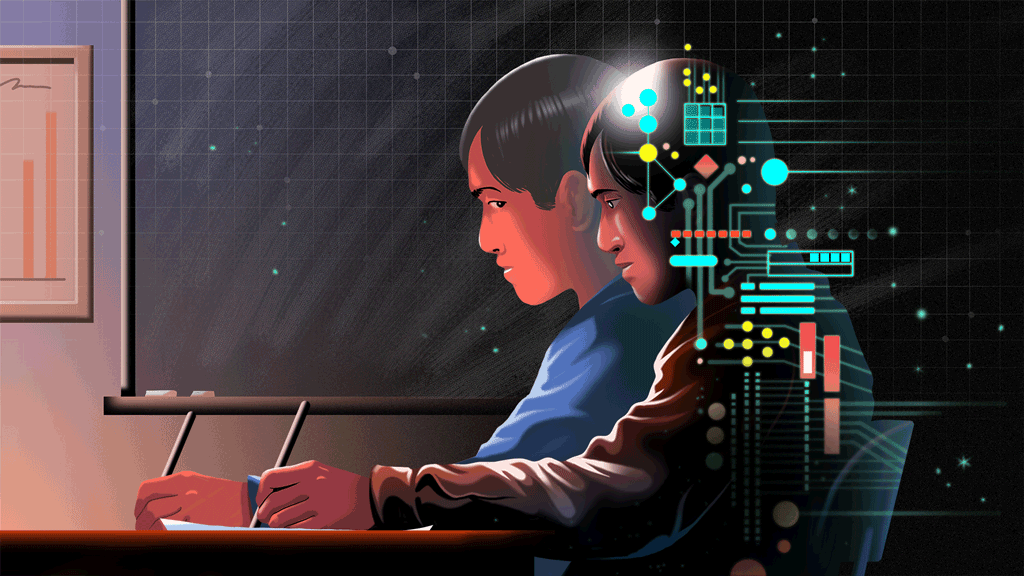AI Education: Your Golden Ticket to the Next Big Revolution, Akin to the Bitcoin Boom
Every so often, the world witnesses a revolution that dramatically reshapes our reality and the way we interact with it. A century ago, it was the industrial revolution; more recently, it was the digital boom. Today, we stand on the precipice of a new era: the age of Artificial Intelligence

Every so often, the world witnesses a revolution that dramatically reshapes our reality and the way we interact with it. A century ago, it was the industrial revolution; more recently, it was the digital boom. Today, we stand on the precipice of a new era: the age of Artificial Intelligence (AI). Just as those who embraced the Bitcoin phenomenon reaped unimaginable benefits, AI presents similar transformative potential.
Yet, the adoption of new technological advancements often brings with it an understandable sense of apprehension and skepticism. Questions like "Is AI learning the right move for me?" or "Can AI replace traditional jobs?" often haunt our minds. This article aims to dispel these concerns and provide perspective on why immersing oneself in AI education could be the next big leap towards securing a prosperous future.
AI: The Future or Fantasy?
Contrary to popular misconceptions, AI is no longer a futuristic concept confined to science fiction or the cutting-edge laboratories of Silicon Valley. Its applications have already permeated our everyday lives – from personalized recommendations on Netflix, to voice assistants like Alexa, to groundbreaking advancements in healthcare, logistics, and countless other fields.
This universal integration of AI into our societal fabric is not transient; rather, it is projected to grow exponentially, dramatically reshaping the job market in the process. According to a report by the World Economic Forum, AI and automation will create 12 million more jobs than they displace by 2025. However, the key to unlocking these opportunities lies in AI literacy.
The Value of AI Education:
AI education equips individuals with the skills necessary to navigate and thrive in this rapidly evolving landscape. It cultivates a deep understanding of AI systems, their applications, and the ethical considerations surrounding their deployment. Importantly, it empowers individuals to transition from passive consumers of AI to active participants in its creation and implementation.
Fears around AI "stealing jobs" often stem from a lack of understanding about the technology itself. AI is not here to replace us; instead, it is a tool designed to augment human potential, making us more efficient and productive. AI does not eliminate jobs; it changes them, often for the better, automating routine tasks and allowing humans to focus on more creative and complex problem-solving activities.
Drawing Parallels: The Bitcoin Phenomenon:
In its early days, Bitcoin, like AI today, was met with skepticism and doubt. Many saw it as an unstable, impractical concept, detached from the realities of traditional economics. However, those who saw the potential, took the leap, and invested in understanding this revolutionary technology are now reaping the benefits.
Much like the Bitcoin boom, AI's potential for transformation is enormous. According to PwC, AI could contribute up to $15.7 trillion to the global economy by 2030. This vast economic impact will bring with it an abundance of new job roles and opportunities – for those equipped with the necessary skills to seize them.
While the past's factories and traditional job roles may not return in their old forms, a plethora of new opportunities are opening up in the AI industry. AI education is not just about learning to code or create algorithms; it's about understanding the language of the future, where AI will play an integral part.
Deciding to embrace AI education today is akin to buying Bitcoin in its infancy. The journey may seem daunting at first, but the potential rewards are monumental. The question is not whether you can afford to dive into AI; rather, it's whether you can afford not to. In an increasingly AI-driven world, the choice is clear: Don't miss the train.




